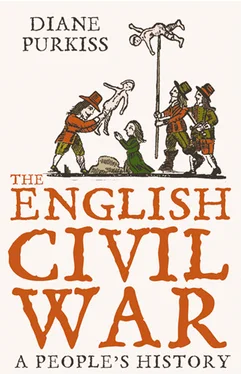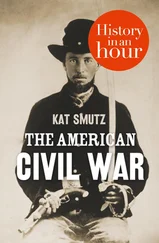I also gratefully greet those of my profession who have made the present book possible by their tireless, often unrewarded and unrecognized attempts to labour through unread and grimy manuscripts and smudged public records in search of those most elusive of all historical personages, the ordinary man and woman. May we all, author and readers, unite in their name. And I commend this my poor book to you above all.
Your very humble servant,
THE AUTHOR
Oxford
February 2006
One night in 1712, a man named Thomas Neville lay dying in his own bed, surrounded by family and friends. He was an ordinary gentleman, but in his lifetime he had been among those who had seen the Middle Ages finally disappear, and the modern era emerge. He had seen wonders, and had even made them happen. But the changes he had witnessed were accompanied by violence and terror unmatched in the history of his country. Thomas Neville was the last man to remember that turmoil, the last surviving field officer from a once-great but defeated army, the army of King Charles I.
Thomas Neville had had better reason than most to join the king’s army. He had seen his rich father ordered to give up the house he had grown up in and had heard him say that ‘rather than yield to dishonourable persons, I will make my house my grave’. His enemy – the Parliamentarian Lord Grey of Groby – stormed the house and took his father prisoner; the building was burned to the ground. From then on Thomas Neville and his elder brother William were at war, whether they wished to be or not. In 1644, they fought at Newark; in 1646 at Ashby de la Zouch. Both brothers survived the war, but William was dead by 1661. Thomas survived to tell his stories of dashing Cavalier Prince Rupert galloping to the rescue of his children and grandchildren.
By the time Thomas Neville closed his eyes in death, the war he had fought in had become distant even for his grandchildren. In the decades that followed the war, throughout Britain, people began to make efforts to write down the Civil War stories that their grandfathers had told. Those who had fought themselves had spent the Restoration years writing down their experiences, fighting old battles again. And grandmothers wrote too, for grandchildren who would never know their grandfathers because they lay buried at Edgehill, at Newbury, at Marston Moor or Naseby, or by lesser towns or streams where short sharp engagements had been fought. Some wrote for the God for whom they had shed their blood; others for the Good Old Cause, and still others for the kings living and dead whom they had served. Some recounted their war experiences in the hope of a disability pension, or to explain to a sceptical community exactly what they had done. All of them wrote because they knew they had lived through a time like no other.
Their descendants kept their letters, their diaries, their memoirs faithfully, knowing that in those pages lay a link to a time fast passing from memory into history. Others sought to scrabble together the storm of paper the war had produced; George Thomason tried to collect every pamphlet, newspaper and ballad printed during the war, while Samuel Pepys put together ballads and Edward Hyde and John Aubrey wrote down soldiers’ and survivors’ recollections. Those who had been children when King Charles raised his standard recorded their memories of the lost king; those who had been youths when Cromwell held court at Westminster wrote down what they had seen. Between them all, they kept alive what all history needs: the stories of the people who lived it.
Those who kept these careful records were right about the importance of what they had seen to the lives of the men and women of the future. We owe our state of government to the English Civil War, but most of its beneficiaries have little idea who fought whom or when or why. Nor do most of us care; what little we know seems remote and difficult to grasp, with stiff figures on battlefields and stiffer constitutional debates. Yet actually, the English Civil War was the making of our country. It made us the nation we are, the countries we are, the people we are. It also created those more permanent revolutions by influence: Thomas Jefferson and George Washington recalled and revered the Good Old Cause against the king’s tyranny, and the French revolutionaries had read their Milton. The glories and liberations of that long-ago conflict still benefit us today; so too its failings and limitations are with us, part of our blood, setting the horizon of our expectations. And to understand ourselves, we have to understand the people we were, the people who fought in that war.
This book has two goals: to tell the story of the English Civil War up to and including the execution of the king, and to bring to life the people who fought in it, died in it, and in doing so changed the history of the world for ever.
To do this, I tell the story of the war from the points of view of the people involved. The war is interesting because it was fought by people, men and women. My cast of characters ranges from Charles I himself, disastrous shaper of his own fate, through his most educated and articulate opponents, men like John Milton, and through men and women utterly obscure before the war and glintingly prominent after it, men like Oliver Cromwell, through to what Charles himself might have called ‘the meaner sort’, men like witch-finder Matthew Hopkins and revolutionary Gerrard Winstanley, godly women like Anna Trapnel. We first glimpse these people before the war, and we see how the war changes them, creates unexpected chances for them to change their lives, overthrows what they thought they could take for granted. When the war ends, when King Charles is dead, we see what all these people have left, what remains of their lives. Mine is not an even-handed portrait. Not all of these people represent something beyond themselves and their individual stories. Some figures that were important do not get as much space as the well-informed reader might expect. But this unevenness was part of contemporaries’ experience of the war; they too did not always see a ‘big picture’, but the small details of a burned barn, a changed pattern of church service, a son lost in battle.
The armed conflict was also a major event in its own right. Estimates suggest that around 800,000 people in the British Isles died during its course, the majority of them in Ireland. One in four of all men served in the armies on one side or the other, which suggests that a majority of able-bodied men was involved. The war was not a clean and tidy affair of sabres and dashing cavalry charges; it was a bloody business largely driven by guns – cannons and muskets and pistols – which at times appears to have combined the worst aspects of the American Civil War and Vietnam. Both sides used soft lead bullets that did terrible damage to flesh. For years afterwards, the London streets were full of one-legged beggars. Cities and castles were razed to the ground.
There were atrocities involving civilians, again especially in Ireland. The war was expensive, and individual families were ruined – or made – by its sweeping hand. And so people came to see change all around them. They thought that the world had been transformed for ever, for them and for their families. Because they thought that, some of them began questioning many taken-for-granted aspects of life, looking in new ways at the purpose of women, the purpose of government and of its leaders, and at the purpose of human beings. Some of what they invented still governs our lives: universal male suffrage, promotion on merit, women’s involvement in politics, the ordinary man’s need for a home and food.
Isabella Twysden’s Civil War diary illustrates the way big events look to small people. In her journal, however, a big event could be personal or political; she gave equal weight to the birth of a new baby, or King Charles’s capture by his enemies in the Parliamentarian army. She tried to chronicle her own life and the life of the nation, with no anxiety about the disparity of scale, because to her both kinds of events were important.
Читать дальше












